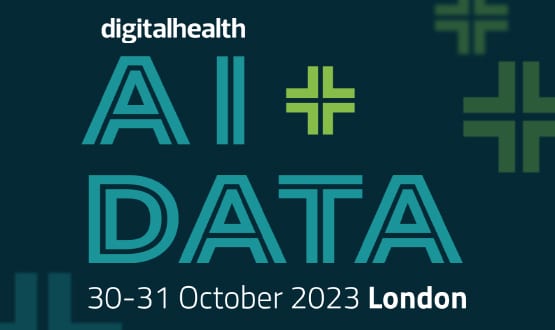AI and Data to look at use of data analytics to address long-term conditions
- 28 September 2023

Still in its early stages, one especially promising application of AI in health is its use with population health data sets to help address the growth of chronic diseases. A session on Day Two of Digital Health AI and Data will focus on how AI can meet the challenges faced by patients with multiple long-term conditions (MLTC).
Simon Fraser, professor of public health at the School of Primary Care, Population Science and Medical Education at the University of Southampton, has spent much of his career as a public health specialist looking at the epidemiology of long-term conditions.
He will join Dr Gyucha Thomas Jun, professor of socio-technical system design at the School of Design and Creative Arts at Loughborough, Krish Nirantharakumar, professor of health data science and public health at the University of Birmingham and Professor Michael Barnes, professor of bioinformatics and director of the centre for translational bioinformatics at Queen Mary, University of London for the AI and Data session, which looks at how four UK research groups are using AI and data analytics to look at England’s 14 million people living with MLTCs.
Fraser, who heads one of the National Institute for Health and Care Research’s (NIHR) seven research consortia looking at multiple long-term condition multimorbidity, observes that understanding the development of long-term conditions to better inform prevention requires information from “across the life course,” but that electronic health records are recent enough that they cannot provide sufficient information on their own.
“We are exploring data that have the potential to look at the whole life course,” Fraser told Digital Health News, adding that the research group is using both birth cohorts – groups of several thousand people born in the same week in time (for example, in 1970), for whom extensive data is collected every few years – and ordinary healthcare information in electronic health records.
Although social determinants of health, from upbringing to education to income, are known to influence the likelihood that an individual will develop health problems, that level of detail is often hard for researchers to access and such data is not routinely collected in health settings.
“The important thing is to fill in that gap and bring those determinants into the wider story of development of long-term conditions across the life-course,” Fraser said.
“Because of the complexity of those data, there is the potential for AI methods to help with clustering, sequencing and various other aspects of how people develop conditions over time.”

Using technology to create data links
Technology also has the potential to learn across datasets, for example between birth cohorts and routine healthcare records. In secure data environments, linkage is also possible between electronic health records and other valuable sources, such as educational and census data.
This linkage can help researchers learn without incurring the risk of identifying individuals. Ultimately, the goal is to learn at what periods in the life course it might be possible to intervene to prevent or delay the onset of multiple long-term conditions, he said.
“There are challenges related to the very different data types we are using that only have some overlapping domains,” he said. “The birth cohorts are very rich in these social data and wider determinants, but relatively limited on the long-term condition front. The electronic health data records are rich on long-term conditions but relatively limited on social data.”
The challenge for the future, Fraser said, will be finding new ways of looking across both kinds of data sets in ways that are both reliable and secure in order to give a fuller picture of the lifecourse.
AI and Data is from the organisers of the market-leading Digital Health Rewired and Digital Health Summer Schools events and includes a wide-ranging programme of events on two stages: AI and Analytics and Data and Research.
All sessions are CPD accredited. AI and Data is free for the NHS, public sector, start-ups, charities, education and research. Commercial tickets start from £275+VAT. Register here.





